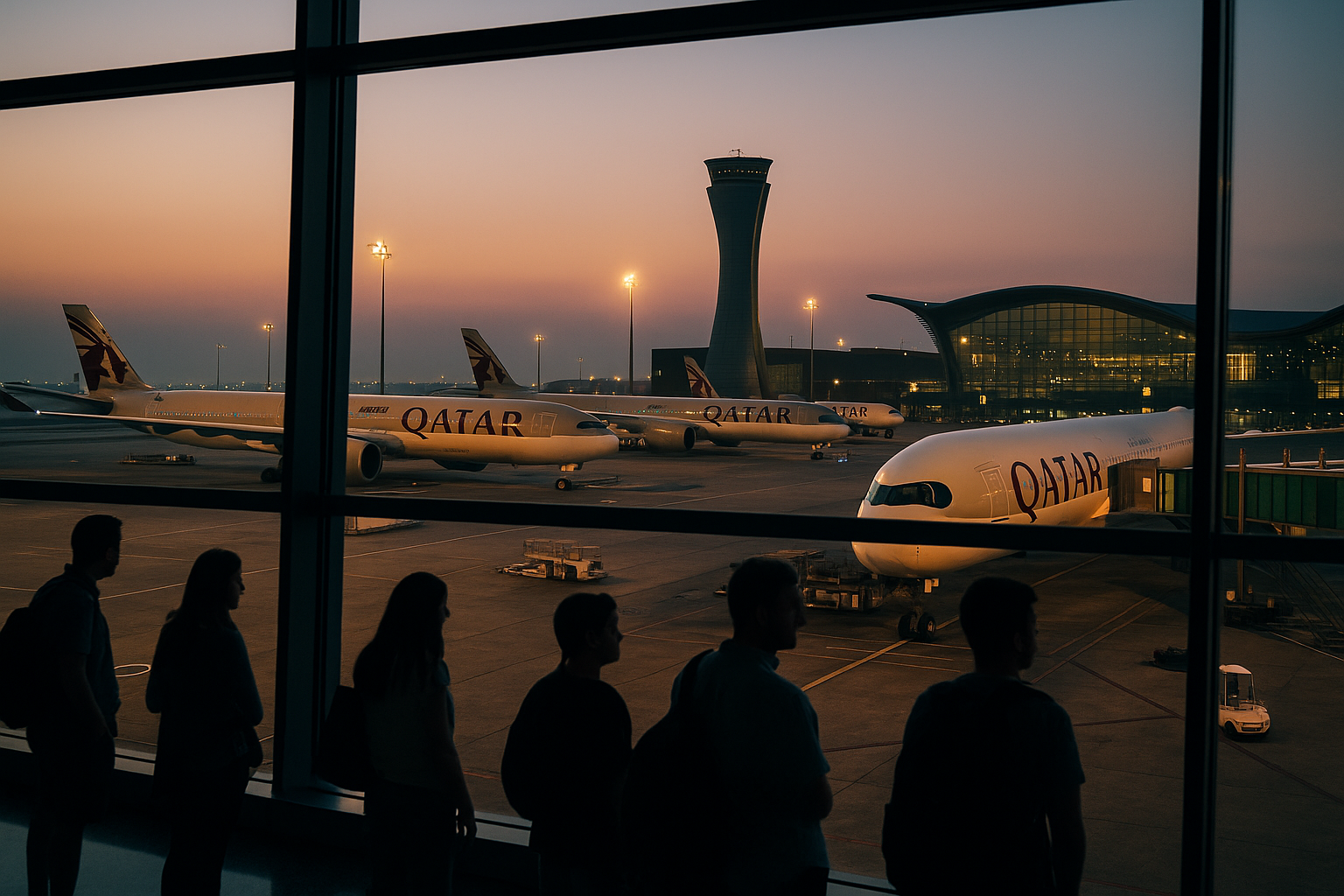Qatar Reopens Airspace Following Missile Strike, But Australian Travellers Continue to Face Major Flight Disruptions
Doha / Sydney – June 2025:
Qatar has officially reopened its airspace following a temporary closure triggered by missile strikes on a United States military installation in the Gulf region. While the skies over Doha are once again operational, international travel disruptions continue to ripple across the global aviation network—especially affecting Australian travellers en route to Europe and Asia.
The abrupt closure of Qatari airspace on Sunday came after missile attacks struck a U.S. base within Qatari territory. Though the suspension lasted only a few hours, it set off a chain reaction across international flight corridors, affecting thousands of passengers and rerouting aircraft mid-journey. Despite the airspace now being cleared for commercial flights, the resulting congestion, diverted planes, and disrupted schedules remain unresolved.
Immediate Aviation Fallout and Grounding of Flights
The crisis began early Sunday morning (around 2:45 a.m. AEST), when Qatari authorities issued an emergency closure of their airspace. Major carriers operating through the Gulf—including Qatar Airways, Emirates, Etihad Airways, Turkish Airlines, and Singapore Airlines—were forced to delay, reroute, or cancel services.
Australian travellers, many of whom depend on Gulf hubs like Doha and Dubai to transit between the Asia-Pacific region and Europe, were caught in the chaos. Flights originating from Australia—including Qantas flight QF33 from Perth to Paris—were forced to return to their departure points or divert to airports in Singapore and India. Similarly, QF9 to London was rerouted mid-air.
Qatar Airways, with direct services between Doha and five Australian cities—Sydney, Melbourne, Brisbane, Perth, and Adelaide—also experienced substantial delays and cancellations. Sunday evening saw QR909 from Sydney, QR905 from Melbourne, and QR899 from Brisbane cancelled outright, as airline scheduling teams scrambled to manage limited airport capacity and secure reauthorizations.
The Strategic Importance of Doha for Global Aviation
Doha’s Hamad International Airport, a key aviation hub, handles tens of millions of international passengers annually and serves as the central operational base for Qatar Airways, one of the world’s leading global carriers. Its location in the Gulf positions it as a critical connector between the East and the West, making any disruption in this region a globally impactful event.
Dubai International Airport, just a short flight from Doha and home to Emirates, also experienced congestion and delays. The suspension of flights to and from the Gulf by airlines like Turkish Airlines and British Airways underscores the vulnerability of these strategic transit hubs.
Australian Travellers Bear the Brunt
For Australians, the fallout has been particularly severe. With limited non-stop long-haul routes to Europe, many Australians rely on Gulf stopovers for affordable and efficient travel. The temporary grounding of Qatar Airways flights and those codeshared with Virgin Australia left many passengers stranded in airports, waiting for rebooking and accommodation assistance.
Passengers with connecting flights in Doha missed further connections to European capitals such as Paris, Frankfurt, London, and Rome, resulting in cascading delays for business, leisure, and family trips.
Australian airports—especially in Brisbane, Perth, and Sydney—have become increasingly reliant on Gulf carriers for international connectivity. As this disruption shows, Australia’s aviation infrastructure remains vulnerable to geopolitical tensions halfway across the globe.
Operational Strain and Airline Response
Airlines are facing operational and financial strain as they manage the backlog. Beyond passenger dissatisfaction, the crisis has resulted in increased fuel expenses due to longer rerouting, unplanned landing fees in alternate airports, and compensation obligations including hotel stays and rebooking costs.
Aviation authorities in Qatar and the UAE are working with international regulators to re-establish safe corridors. However, flight normalization could take several more days, if not weeks, as aircraft repositioning and rescheduling create a ripple effect on global operations.
Broader Risks and Long-Term Implications
This latest incident highlights the fragile interdependence of global aviation. The Middle East is home to three of the world’s most influential carriers—Qatar Airways, Emirates, and Etihad—and serves as a nexus for air traffic between continents. A sudden escalation in regional conflict can thus paralyze worldwide travel within hours.
Going forward, airlines are expected to enhance contingency planning for conflict zones, and travellers may increasingly seek flexible tickets and comprehensive insurance policies that cover geopolitical disruptions.
Advice for Passengers
Travellers scheduled to fly through Doha or Dubai in the coming days are strongly advised to:
- Check flight status regularly on airline websites or apps
- Reconfirm itineraries and monitor layover requirements
- Review government travel alerts for the Middle East
- Allow extra time for transfers and check-ins
- Consider rerouting through alternate hubs if needed
With call centers overwhelmed, passengers are urged to remain patient and use digital tools for rebooking.
Conclusion: A Reminder of Global Interconnectivity
The reopening of Qatari airspace brings cautious relief, but recovery will be slow and staggered. For thousands of passengers—particularly Australians bound for Europe or Asia—the ordeal serves as a sharp reminder of the interconnectedness of today’s aviation system and its susceptibility to geopolitical unrest.
While Doha’s skies are clear once more, restoring confidence and consistency in global travel will take coordinated efforts from airlines, airports, and governments. In the meantime, flexibility, real-time awareness, and travel preparedness remain essential for all long-haul travellers.
For more travel news like this, keep reading Global Travel Wire















